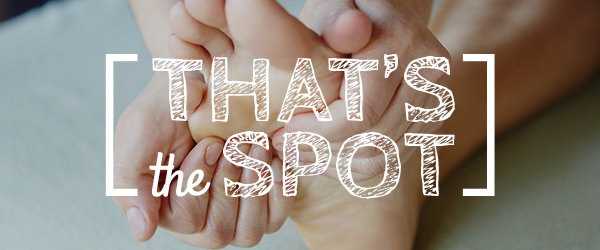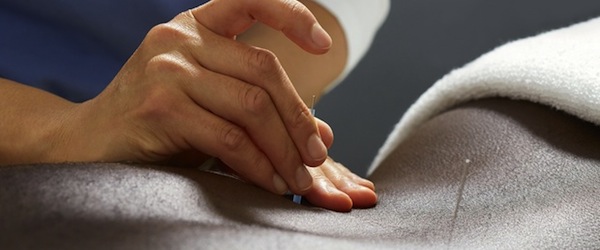How People Are Using Acupuncture to Fight Allergies
Knoxville, Tennessee, boasts postcard-worthy views thanks to its location in the Great Appalachian Valley between the Great Smoky Mountains and the Cumberland Plateau. Unfortunately, those same features help produce a distinction the city’s less likely to brag about: it’s a regular contender for allergy capital of the United States.
“We are the worst,” laughed Angela Buckridge, who practices acupuncture at her own clinic, Angie’s Acupuncture, in nearby Seymour.
But wait—what does acupuncture have to do with allergies? Well, with more than 50 million Americans suffering from allergies each year, there are a lot of people seeking relief who are dissatisfied with the allergy treatments offered by Western medicine. Acupuncture for allergies is one of the most common alternative therapies.
Since Buckridge lives and works in one of the most allergen-laden places in the nation, we asked her for insight into how traditional Chinese medicine views allergies and how acupuncture may help treat them.
How allergies fit into acupuncture’s worldview
Western medicine often treats allergies in isolation. Visit the doctor with sinus congestion and a wheezy cough, for example, and there’s a good chance you’ll walk out with prescription for an extra-strength antihistamine or maybe a steroid to strengthen your airways. At an acupuncturist, allergies are looked at more as a piece of a puzzle.
“I don’t automatically treat allergies because that’s what the patient says,” Buckridge said. Instead, she and her peers investigate how allergies fit into a larger pattern of well-being. To do so, they rely on a broad assessment of the body, which can range from multiple pulse measurements to a visual examination of the tongue. They also question the client, asking:
- Does your digestion ever feel slow?
- Do you generally feel warm or cold?
- Do you have any recurrent pain or discomfort?
They want to gain insight into how well the organs are communicating. Acupuncturists believe the body is connected by a system of meridians; when these meridians are unimpeded, energy flows through them freely. “It’s a river running through the body,” Buckridge said.
When the meridians are blocked, it dulls the connection between different parts of the body. Allergies could indicate an obstacle to communication with parts of the body that don’t sneeze or cough. Acupuncture for allergies seeks to remove those blockages.
The needles go where now?
Once the acupuncturist has finished their examination, it’s time to insert some sterile, hair-thin needles. That prompts some questions: what are the needles for again? And where will they go exactly? (To soothe your nerves right now: they’re inserted so shallowly that all most people feel is a bit of pressure.)
Acupuncture identifies more than 360 contact points on the body, Buckridge said, and where the needles are placed depends on what theory the acupuncturist subscribes to. Generally, though, by stimulating a contact point (i.e., inserting a needle)—on the ear, for example—acupuncture directs energy to its corresponding part of the body—the spleen, say—to help restore the unimpeded meridian.
So if you use acupuncture for allergies, there’s a good chance the acupuncturist will put needles in places as far away from your sinuses as your feet. The goal is to direct energy to where your body needs help healing itself.
How long will it take to feel relief?
Buckridge said that many of her clients experience immediate results. However, instant relief doesn’t happen for all allergy sufferers. Some patients require multiple treatments to feel better; those with deep underlying conditions, Buckridge said, might experience worse allergy symptoms before they feel better. There may be heavy blockages to work through, such as scar tissue or calcium deposits. But people who have endured allergies for years may be more willing explore the possibilities of acupuncture.
That’s all right with Buckridge, who thinks acupuncture has a deeper purpose. “It’s about identifying how your body repairs itself,” she said.
Check out related reads on the The Guide:

What the Heck Is Reflexology, Anyway?
Turns out tiny spots on your feet can have a big impact on your physical and mental well-being. A reflexology practitioner explains all.

How Does Acupuncture Work?
Acupuncture is an ancient Chinese art that Western science is beginning to embrace. Studies show that it may be effective for treating several forms of chronic pain.

